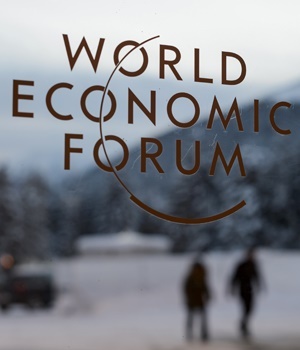
Representatives of “Team South Africa” at the recent World Economic Forum (WEF) on Africa agree on one thing: Rwanda is a role model – and President Paul Kagame, who is set to extend his 16-year rule up to 2024 (following his decision to run for a third term in the country’s 2017 elections) has something to do with it.
The Rwandan capital, Kigali, hosted this year’s meeting. South Africa made up 20% of the 1 200 delegates, most of whom came from the private sector.
At a debriefing event hosted by Wits Business School last week, some of them heaped praise on Rwanda.
Cas Coovadia, managing director of the Banking Association of SA, said South Africa could learn from Rwanda about issues such as public broadband, punishing corruption and fostering a national “singleness of purpose”.
“With broadband ... you get into the bus [in Kigali] and there is a sign that you are connected, no matter where you are. There is no reason we cannot do that.”
He added that a Rwandan minister’s advice on how to deal with corruption was also inspirational.
“The minister said: ‘Lead by example, implement and let the punishment be way out of proportion.’
“It is not rocket science. We can do it.”
Other attendees were wowed by Kigali’s cleanliness, which the city is known for. “Rwanda is a fantastic place to go to. It is mind-boggling to see how clean the city is and to see the social cohesion of the population ... under the leadership of the president,” said Nicolaas Kruger, CEO of JSE-listed insurance group MMI Holdings.
“Some people talk about a Singapore on the African continent... ” added Kruger.
Jeff Radebe, minister in the presidency for performance evaluation and monitoring, punted Kigali’s clean streets. Some attribute it to a ban on plastic bags and mandatory street-cleaning by citizens one Saturday every month.
Others, such as Human Rights Watch, in a report last year, attribute it to the practice of rounding up street children, vendors, beggars, sex workers and others, and detaining them at a quasi-prison called the Gikondo Transit Center.
According to Radebe, “political will and decisiveness, and the focus on economic growth and investment are part of the success story”.
He added that there “is visible transformation everywhere” since he first visited Kigali in 2007 as part of former president Thabo Mbeki’s Cabinet. “It is working effectively with neighbouring states,” he said.
“One example: one single cellphone call is charged as a local call across the region. This is trailblazing. In the Southern African Development Community this is a leaf we can take.”
Radebe said the South African government had come out of the past few WEF meetings with at least two concrete gains.
One is the Urban Water Alliance, a framework of public-private partnerships that Radebe pitched to the global private sector at last year’s WEF Africa.
The other is a partnership with US consultancy Boston Consulting Group to get some parts of the so-called North-South Corridor off the ground. The corridor is a group of 300 transport and energy infrastructure projects linking south and east Africa.
The Boston firm had done work for other governments on the similar Central Corridor of prospective infrastructure projects linking Tanzania, Uganda, Rwanda, Burundi and the Democratic Republic of Congo (DRC).
The South African delegation at WEF in 2014 caught wind of this and asked for similar research.
WEF is a think-tank supported by major corporations across the world and is best known for its annual meeting in Davos, Switzerland. Its smaller regional meetings also take place annually, including one in Africa.
In addition to Radebe, four ministers and Deputy President Cyril Ramaphosa attended.
“What [the Boston group] has done with the presidency and the Development Bank of SA is to make sure we are getting these projects bankable sooner rather than later,” said Radebe.
“There is a growing appetite by the private sector to finance these projects. What is needed is a bouquet of well-developed projects.”
According to Radebe, 34 projects from the Corridor plan had been selected and the four most promising ones were now being fast-tracked.
Adam Ikdal, managing partner of The Boston Consulting in South Africa, told City Press that the firm was about to deliver a report on these four that identifies obstacles to getting them funded and built.
These are the Grand Inga hydropower project in the DRC; the second phase of the Lesotho Highlands project; a rehabilitation and upgrade of the Beitbridge border crossing; and the implementation of an Africa-wide rolling stock plan that would see Transnet become the provider of trains to the entire continent.
This report would be presented to the investor community at a conference later this year, said Ikdal.




 Publications
Publications
 Partners
Partners








